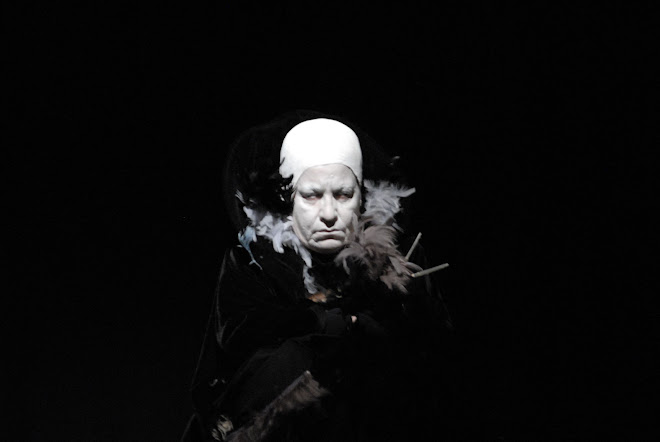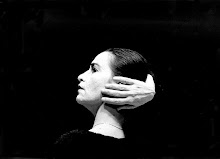
"Seeking Oedipus" recently performed at the Athens and Epidaurus Festival in July 2008 and at the Macau Cultural Centre in October 2008
Seeking Oedipus will be performing at the London International Mime Festival on the 15th & the 16th of January 2009

Mystical like all that is Great
Magical like all that is Mystical
We bring the myth of Oedipus on the stage
What is this that has tortured man for centuries, in his relationship with the parental figures?
What is the curse that has stigmatized Laius from the ancient myth until today, that was, to be murdered and substituted by his son?
The performance “Seeking Oedipus” reveals through one of the most ancient myths, the causes of the House of Lavdakides destruction
A performance created with the materials of Silence
The Silence that says the unsaid
The Silence that sanctifies
The verbose Silence of the body
The Silence of the gaze
The universal Silence of humanity
Along with the music that the bodies create, the narration of the Oedipus’ myth is subscribed directly to the audiences’ subconscious, creating an ultimately interactive performance, and by holding Apollo’s thread, it unifies the stage with the audience in a constant vigilance.
The Theatre of Silence presents the performance “Seeking Oedipus” , which is created with the ancient but also the absolutely timeless Art of Mime. An Art that was born in


Six actors play the mythic heroes linked to the cursed house of the Labdacides on a “dangerously inclined plane”. Picking up the tale from the family’s original sin – the “guilty passion” Laius, the son of Labdacus and father of Oedipus, nursed for Chrysippus, which leads to the youth’s suicide – the cast attempt a new reading of Oedipus’ patricide and incest.
Aspasia Kralli, who studied mime at the Marcel Marceau Paris International School of Mimodrama, employs the language of the body in her approach to the tragic Oedipus cycle in which psychoanalysts have sought expressions of the subconscious and timeless questions relating to parents’ relationships with their children and to human existence
Written & Directed by Aspasia Kralli
Music: Stavros Gasparatos
Lighting: Lefteris Pavlopoulos
Movement: Zoi Chatziantoniou
Set Designer: Aspasia Kralli
Stage Sets: Adrian Fluture
Costumes & Props: Ioanna Tsami
Assistant Director: Vassia Paraskevopoulou
Cast:
Teiresias: Aspasia Kralli
Oedipus: Giorgis Tsambourakis
Laius: Ilias Meletis
Jocasta: Malamatenia Gotsi
Shepherds 1 & 2 – Meropi-Sphynx: Kostis Koronaios
Chryssipus: Jason Bitter-Kourounis






